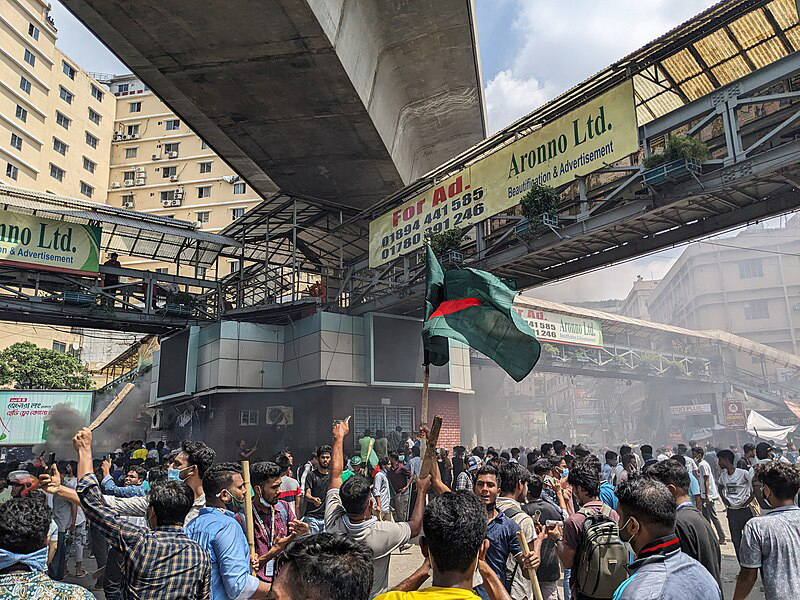 Bangladesh
Bangladesh
Bangladeshi Islamists could fuel radicalization in Southeast Asia challenging Jemaah Islamiyah’s disbandment
Dhaka/IBNS: Southeast Asia’s one of the most significant and influential Salafi-jihadist groups, Jemaah Islamiyah (JI)—known for its role in the 2002 Bali bombings—recently declared its disbandment, reports said.
According to reports, 16 senior JI members announced their intention to transition the group into a new education-focused organization.
Thoriqudin (also known as Abu Rusydan), JI’s spiritual leader, appeared in a video confirming the dissolution of the group and a symbolic “return to the Republic of Indonesia.”
As a gesture of commitment to this new direction, JI surrendered its weapons caches and provided Indonesian authorities with a list of its militant members, including those trained in Syria.
Additionally, JI committed to revising the curricula at its 60 affiliated schools in collaboration with the Indonesian Ministry of Religion, aiming to remove extremist content and align with national standards.
JI members had participated extensively in Middle Eastern conflicts, training with groups such as the Free Syrian Army, Jabhat al-Nusra, and Ahrar al-Sham.
At one point, the group even established its own training camp in Syria.
This prompted a severe crackdown by Indonesian authorities, particularly with the Counterterrorism Special Detachment 88 (Densus 88).
During this period, discussions began between JI leaders—both in and out of prison—and Densus 88, ultimately leading to JI’s decision to disband.
Jemaah Islamiyah, a tightly knit jihadi network connected through familial, social, and business ties, has chosen to dissolve its organizational structure to preserve the community.
JI has shifted its focus away from violent extremism and instead aims to build an Islamic society through political, economic, and social efforts.
This decision followed a 16-year reevaluation of its tactics, concluding that violence was no longer viable, especially with a lack of public support for such methods.
According to the Institute for Policy Analysis of Conflict (IPAC), JI recognized that without the backing of the broader Indonesian Muslim community, its survival was at risk.
Alif Satria, a researcher with the International Centre for Political Violence and Terrorism Research (ICPVTR), noted that JI issued a fatwa endorsing peaceful demonstrations as a form of “jihad through words.”
This marked a departure from the group’s traditional association of jihad with combat.
In addition, JI allowed its members to vote in Indonesia's 2019 presidential elections, indicating a shift toward political engagement.
One senior JI leader explained the ideological reasoning behind the decision to disband: “We realized we cannot wage war against the state… The government and state are not considered enemies or un-Islamic.”
This ideological shift has opened the door for the reintegration of JI members into Indonesian society, with support from Densus 88 and the Ministry of Religious Affairs.
While JI’s disbandment could reduce the immediate risk of terrorism in Southeast Asia—particularly in Indonesia, Malaysia, and the Philippines—there are concerns about potential splinter groups or members joining other extremist organizations, particularly in Bangladesh, as per reports.
Bangladesh is experiencing a resurgence of radical Islamism, with extremist groups like Ansarullah Bangla Team (ABT) and Neo-JMB drawing inspiration from global jihadist movements like al-Qaeda and ISIS, media reports said.
There is a risk that disgruntled former JI members could be drawn to these groups, leading to the emergence of new threats.
The disbandment of JI has been significantly influenced by relentless counterterrorism efforts led by Southeast Asian governments, especially Indonesia.
Similarly, Bangladesh's recently ousted prime minister, Sheikh Hasina, led a strong crackdown on radical Islamists during her tenure.
However, the current interim government in Bangladesh has witnessed a resurgence of extremism, particularly against religious minorities.
This political instability, combined with economic difficulties, has created an environment where radical Islamists are gaining influence.
The return of Islamist forces to power in Bangladesh, symbolized by the rise of pro-Islamist figures such as Muhammad Yunus, poses a potential threat to Southeast Asia, according to reports.
There is evidence of radicalization among Bangladeshis abroad, which has had domestic repercussions.
For instance, some of the perpetrators of the 2016 Holey Artisan café attack in Dhaka were radicalized while studying in Malaysia.
Bangladeshi extremists have also been involved in terrorist plots in countries like Singapore and Australia.
Bangladeshi Islamists’ resurgence could inspire radicalization across Southeast Asia, encouraging militants to travel to Bangladesh for training and strengthening transnational violent extremist organizations (VEOs), as per reports.
While JI’s disbandment is a positive development, continued vigilance and comprehensive strategies are essential to maintain long-term regional security.
The growing influence of Islamist political groups in Bangladesh may pose a significant threat, with the potential to fuel cross-border terrorism and destabilize the region further, according to reports.
Support Our Journalism
We cannot do without you.. your contribution supports unbiased journalism
IBNS is not driven by any ism- not wokeism, not racism, not skewed secularism, not hyper right-wing or left liberal ideals, nor by any hardline religious beliefs or hyper nationalism. We want to serve you good old objective news, as they are. We do not judge or preach. We let people decide for themselves. We only try to present factual and well-sourced news.







